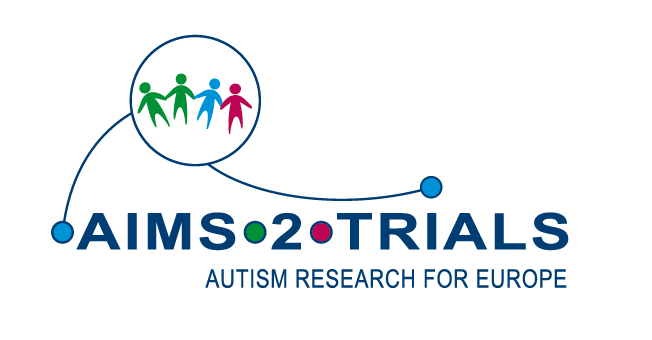 AIMS-2-TRIALS researchers, in partnership with ethicists at the University of Oxford and scientists at McGill University, have reviewed the ethics surrounding ‘early autism research’. This field of research identifies early changes in the developing brain (so-called neurodevelopmental ‘biomarkers’), which may provide information about a child’s potential later outcomes, and about the processes through which autism and other neurodevelopmental conditions emerge. The researchers highlight the ethical gaps in our knowledge and call for greater exploration of the ethics of using early neurodevelopmental biomarkers. The authors also underscore the importance of having more in-depth consultations with the autism community (both autistic people and their families), and also between different research disciplines (e.g. science, humanities, social sciences and bioethics).
AIMS-2-TRIALS researchers, in partnership with ethicists at the University of Oxford and scientists at McGill University, have reviewed the ethics surrounding ‘early autism research’. This field of research identifies early changes in the developing brain (so-called neurodevelopmental ‘biomarkers’), which may provide information about a child’s potential later outcomes, and about the processes through which autism and other neurodevelopmental conditions emerge. The researchers highlight the ethical gaps in our knowledge and call for greater exploration of the ethics of using early neurodevelopmental biomarkers. The authors also underscore the importance of having more in-depth consultations with the autism community (both autistic people and their families), and also between different research disciplines (e.g. science, humanities, social sciences and bioethics).
Autism Representatives (A-Reps) in the AIMS-2-TRIALS consortium welcomed this publication. In particular, its focus on autism being an adaptive response to different ways of processing the world and for encouraging wider consultation with autistic people, saying “it brings a much needed breath of fresh air to the field of autism research”.
History of biomarkers
Over the past three decades, there has been much research into the variation present in autistic characteristics and in identifying genetic biomarkers that underlie these differences. Similarly, there has been extensive research into the ethics of using genetic biomarkers for early autism identification. Recently, this research has expanded to uncover neurodevelopmental biomarkers (for example differences in the thickness of the brain’s outermost layer, the cortex). These markers are identified using non-invasive methods (such as using eye tracking data to measure patterns of visual attention) and may be more helpful than genetic markers. For example, these markers may provide more tailored insights into how to support an individual child’s development, such as an early intervention to strengthen a child’s executive function skills (which includes emotional regulation, flexibility, organising, etc).
However, much of this research is based on the idea of providing ‘optimal outcomes’ – but what would an optimal outcome be? There are also challenges in early identification and intervention: what is appropriate to target with intervention, and who makes this judgement? The researchers identify different, and possibly conflicting, interests for children, parents and autistic adults.
Key findings
The authors identify three main areas of ethical consideration when using neurodevelopmental markers:
- New models of understanding autism – with increasing recognition of the diversity within autism, there has been a shift away from the strict diagnostic categories of the DSM to using alternative models of understanding autism that focus more on trait dimensions, such as communication difficulties. This shift could enable more targeted treatment for individual needs. But if the diagnostic criteria change, what happens to the clinical diagnosis? Do autistic individuals lose access to support and services if they no longer ‘qualify’ as autistic? And for those who have built their sense of self around their diagnosis, what happens to their identity if they lose the diagnosis or its definition changes?
- The risks and benefits of early identification of autism – researchers do not have the ability to predict with certainty which children will later receive an autism diagnosis. The way a child ‘presents’ with autism in early life might be very different to how they appear in later life. Scientists also cannot predict autistic people’s future outcomes. This raises the question, how can we guarantee early intervention would be helpful? There is also a difficult balance between the right of parents to know their child is at increased likelihood of developing autism and perhaps intervene on their behalf, vs a child’s ‘right to an open future’. For example, if autism is viewed as an adaptive response to differences in the way individuals process the world, early intervention may have unwanted side effects. Moreover, such differences may be seen as essential variation for the survival of our species. Another consideration is the child’s right to be supported in early development so they can have a good quality of life later, and to adjust the nature and scope of that intervention for individual children.
- The communication of early concerns to families – many parents find their infant’s early childhood to be a difficult and vulnerable time. Being told at this early stage that their child might later be diagnosed with autism may leave them unnecessarily worried, concerned about their ability to parent (since interventions often focus on parenting styles), and cause the parents to unnecessarily limit the opportunities they provide for their child. It could also impact on how the children are treated as a result of negative stereotypes surrounding autism diagnosis. Other parents may dislike the idea of early identification and interventions, for example if autism has become part of their family bond or if they are autistic themselves.
Author recommendations
The researchers share their recommendations for early autism research:
- Studies researching early biomarkers need to go together with research into the views of autistic people towards these types of study and new models of autism.
- Studies need to consider how to best support parents of autistic children, empowering them to feel positive about their child’s trajectory.
- It is important that researchers investigate the experiences of younger siblings being enrolled in early autism research.
- There need to be long term studies on the impact of any early intervention.
For the future, an increasing focus on ethics, and a partnership between autism researchers and the autism community, will help ensure that any early interventions will serve the autism community’s interests and accommodate their varied experiences.
Update (27th December 2021): This paper is one of the top ten most downloaded papers of 2021 for the Journal of Child Psychology and Psychiatry.
Manzini, A., Jones, E.J.H., Charman, T., Elsabbagh, M., Johnson, M.H. and Singh, I. (2021). Ethical dimensions of translational developmental neuroscience research in autism. Journal of Child Psychology and Psychiatry. Special Issue Original Article. Published: 18 August 2021.








